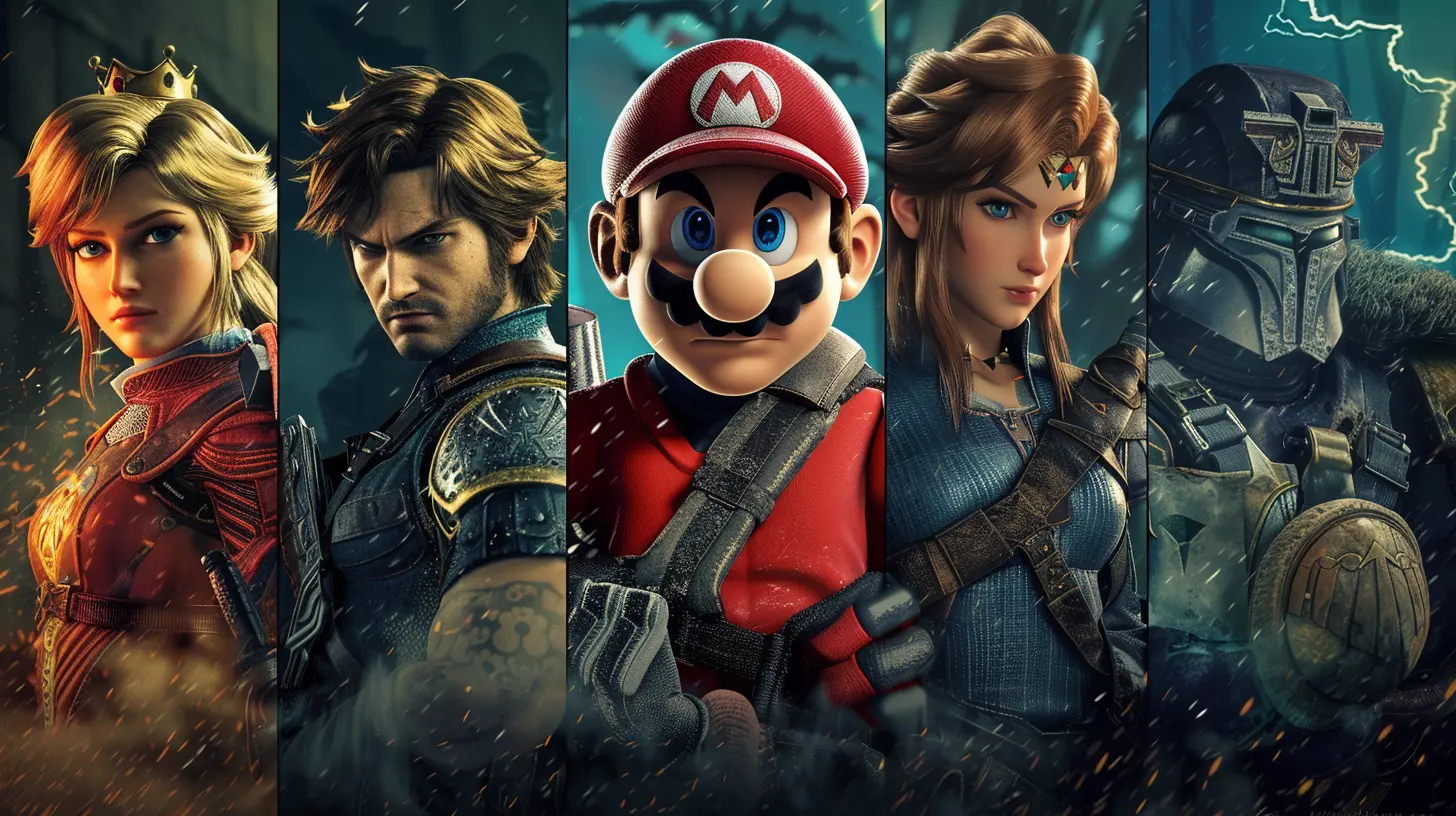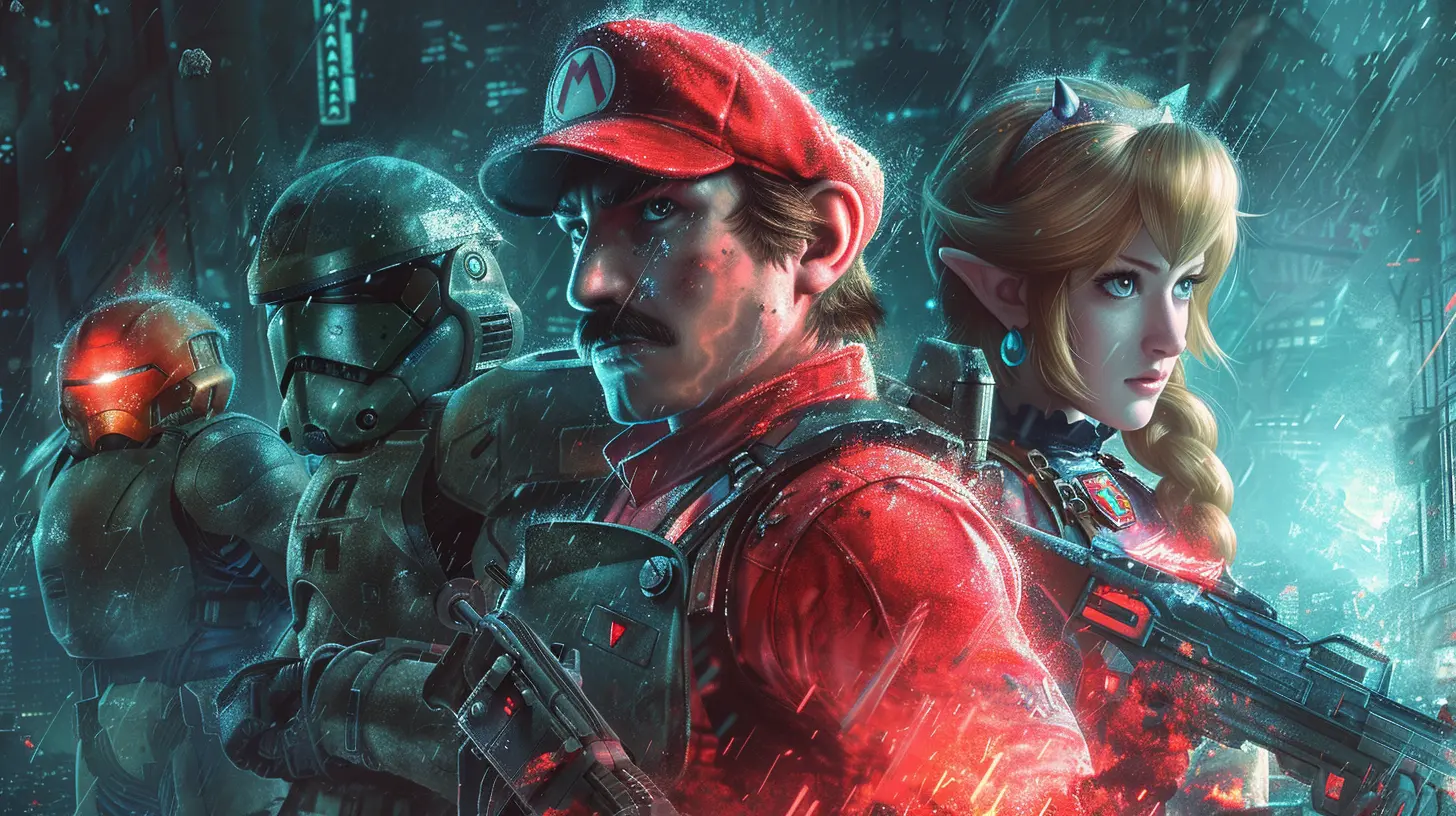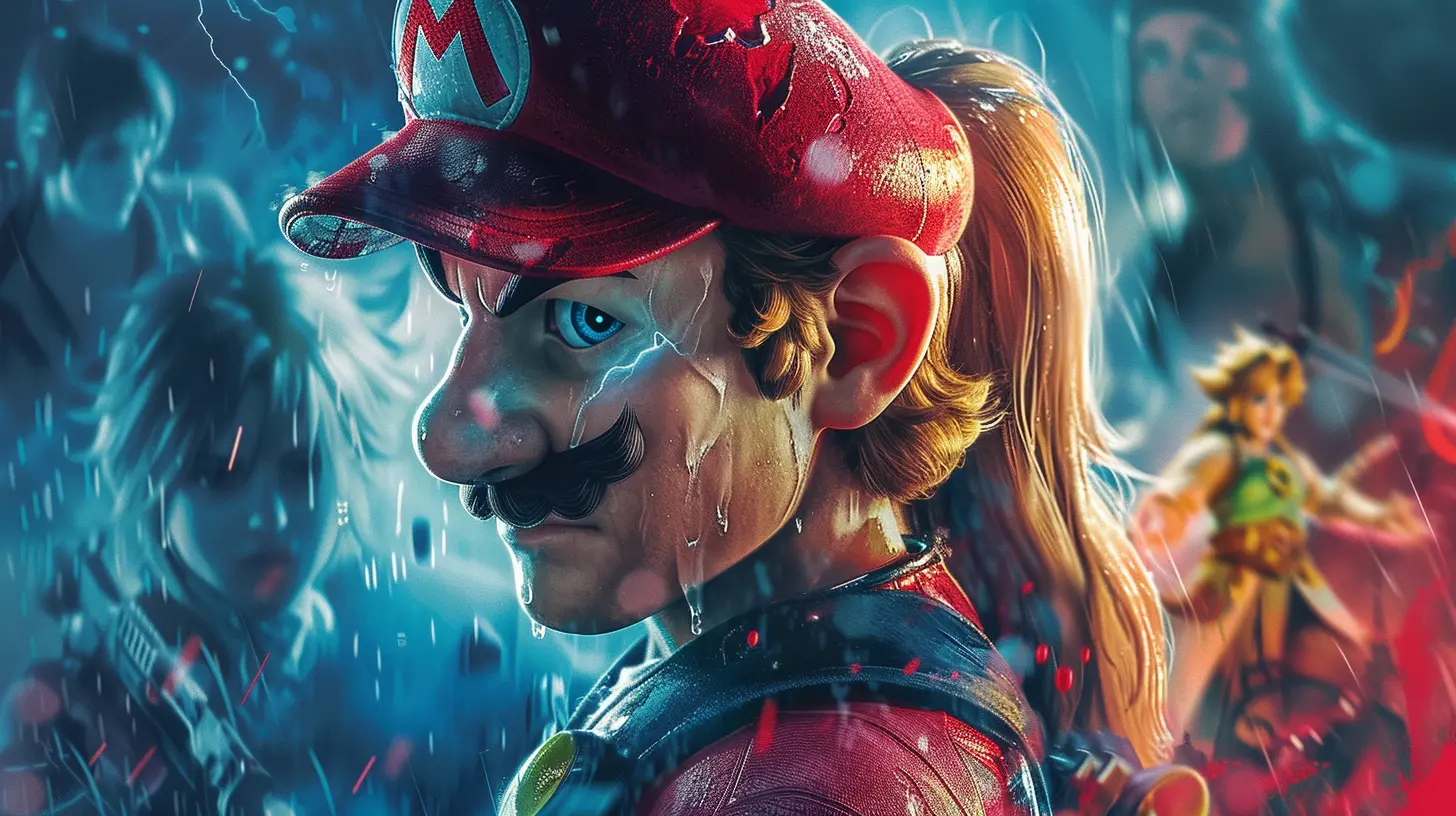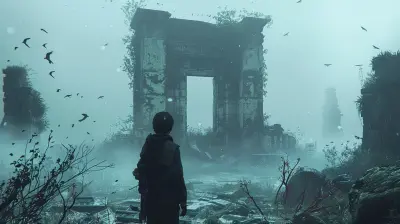4 April 2025
Video games have come a long way from the pixelated screens of the '80s and '90s. Back then, gaming was all about simplicity: side-scrolling heroes, 8-bit soundtracks, and cartridges you had to blow into (remember that?). But as technology has evolved, so has our appetite for more immersive, graphically stunning, and narratively rich experiences. Enter franchise reboots—a trend that’s been shaking up the gaming world and redefining what we thought about classic games.
Now, let’s chat about why this whole reboot phenomenon has gamers talking. It’s not just about nostalgia—it’s about breathing new life into the stories we fell in love with while dragging them, sometimes kicking and screaming, into the modern era.
So, grab your controller (or keyboard), and let’s dive into how franchise reboots are rewriting gaming history—and why they’re so much more than just a cash grab. 
What Are Franchise Reboots?
Before we get too deep into it, let’s make sure we’re on the same page. What exactly is a franchise reboot?A reboot is when developers take an old franchise, keep its essence, and rebuild it from the ground up. It’s like flipping a classic car—keeping the vintage vibe, but dropping in a fresh engine and some shiny new rims. Think of it as a do-over button that brings beloved classics to modern hardware, with enhanced graphics, smoother gameplay, and sometimes even reimagined plots.
Take Tomb Raider as an example. Lara Croft’s journey started in 1996 with sharp polygons and clunky controls. Fast forward to 2013, and the franchise was completely reimagined. It wasn’t just about treasure-hunting anymore—it was about survival, vulnerability, and a deeper storyline. And gamers ate it up. 
Why Are Developers Rebooting Games?
You might be wondering: why are developers so obsessed with reboots? Are they running out of ideas? Not exactly. The truth is, there are several reasons why reboots have become a go-to strategy.1. Appealing to Nostalgia
Let’s face it: gamers are a nostalgic bunch. There’s something magical about reliving childhood memories, but with polished graphics and smoother mechanics. Reboots tap right into that “warm and fuzzy” feeling, blending our love of the past with the modern conveniences of today.It’s not just about the games; it’s about the memories tied to them. Remember staying up all night with friends, battling it out on GoldenEye 007? A reboot lets you relive those moments with a fresh twist.
2. Expanding the Audience
Older games, though revolutionary in their time, can feel dated to newer generations who grew up with PS5s and ray tracing. Reboots bridge that gap, making classic franchises accessible to younger players who may never have played the originals.Imagine trying to introduce someone to the original Resident Evil with its clunky tank controls. Yeah, not happening. But the 2019 reboot of Resident Evil 2? That’s another story.
3. Leveraging New Technology
Let’s be real—technology is the lifeblood of gaming. Reboots give developers the chance to reimagine a game the way they might’ve envisioned it back in the day if only the tech had existed. Remember how cramped those original game worlds felt? Now, thanks to open-world capabilities and next-gen graphics, entire universes can come to life.
How Reboots Are Reshaping Gameplay
Reboots don’t just slap on a fresh coat of paint and call it a day. They’re redefining how we play, experience, and connect with games. Here’s how:1. Modernized Mechanics
Think about classic platformers like Crash Bandicoot. The original trilogy was charming but rigid. Then we got the Crash Bandicoot N. Sane Trilogy, which retained all the charm but introduced smoother controls and quality-of-life updates that make gamers wonder how they ever managed with the originals.Better mechanics make the games more intuitive for modern players while respecting the core formula.
2. Deeper Storytelling
Gaming has grown up, and so have its audiences. Older storylines might’ve been simple, but today’s reboots are diving deeper into character development, plot twists, and emotional weight.Take Final Fantasy VII Remake. The original is a classic, no doubt. But the reboot doesn’t just retell the story—it expands on it, adding complexity and making players care even more about the characters.
3. Inclusivity and Representation
Let’s not ignore the elephant in the room: older games weren’t always the most inclusive. Reboots give developers a second chance to fix that. They can introduce diverse characters, update problematic elements, and ensure the game resonates with modern audiences.For example, the reboot of Prince of Persia: The Sands of Time promises to bring fresh perspectives to a beloved classic. 
The Risks of Reboots
Now, it’s not all sunshine and rainbows when it comes to franchise reboots. Sometimes, they can flop harder than a poorly timed quicktime event.1. Nostalgia Overload
There’s a fine line between honoring the past and milking it dry. Some reboots try too hard to ride the nostalgia wave, forgetting to innovate or bring anything new to the table.2. Alienating Longtime Fans
Reboots can sometimes feel like a betrayal to die-hard fans. Change too much, and you risk upsetting the loyal base that put the franchise on the map in the first place.For example, the reboot of Star Fox Zero left fans feeling frustrated due to its awkward controls, despite all the hype surrounding its return.
Successful Franchise Reboots That Set the Bar
Let’s give a shoutout to some reboots that nailed it and set the tone for the others to follow:1. The Legend of Zelda: Breath of the Wild
Okay, this one is less of a reboot and more of a reimagining, but it’s worth mentioning. Nintendo took a massive leap by turning a linear, dungeon-crawling franchise into an open-world masterpiece. It wasn’t just a game; it was a bold statement about what the series could be moving forward.2. DOOM (2016)
Talk about taking a classic and turning it up to 11. The 2016 reboot of DOOM was brutal, fast-paced, and unapologetically fun. It respected its roots while introducing heart-pounding gameplay that felt right at home in the modern FPS landscape.3. Spyro Reignited Trilogy
For many gamers, Spyro was their first love. The Reignited Trilogy didn’t mess with what made the original great; it just brought the purple dragon into the HD era with jaw-dropping visuals and tighter controls.Are Franchise Reboots Here to Stay?
Absolutely. As long as there’s nostalgia to tap into and technology to leverage, reboots will remain a staple of the gaming industry. But the trick is finding that sweet spot between honoring the original and delivering something fresh.Reboots aren’t just about reliving the good old days—they’re about showing us what those good old days could look like through the lens of today. And honestly? That’s pretty exciting.
So, the next time you hear about a franchise reboot, don’t roll your eyes. Think of it as an opportunity to relive the magic or, better yet, see an old favorite in a whole new light.
Final Thoughts
Gaming is an ever-evolving medium, and franchise reboots are one of the tools developers use to keep it moving forward. Whether they’re modernizing mechanics, diving deeper into storytelling, or making classic franchises accessible to new players, reboots aren’t just hits of nostalgia—they’re a way to redefine what we love about gaming.At their best, they remind us why we fell in love with video games in the first place. At their worst? Well, they’re lessons learned for the future. Either way, reboots aren’t going anywhere—so we might as well embrace the trend and keep hitting “start.




Erica Henderson
Franchise reboots aren't just nostalgia trips; they're bold reinventions that challenge the status quo. By breathing new life into classics, they prove that innovation can coexist with tradition, paving the way for a dynamic gaming future. Embrace the change!
April 4, 2025 at 3:10 AM